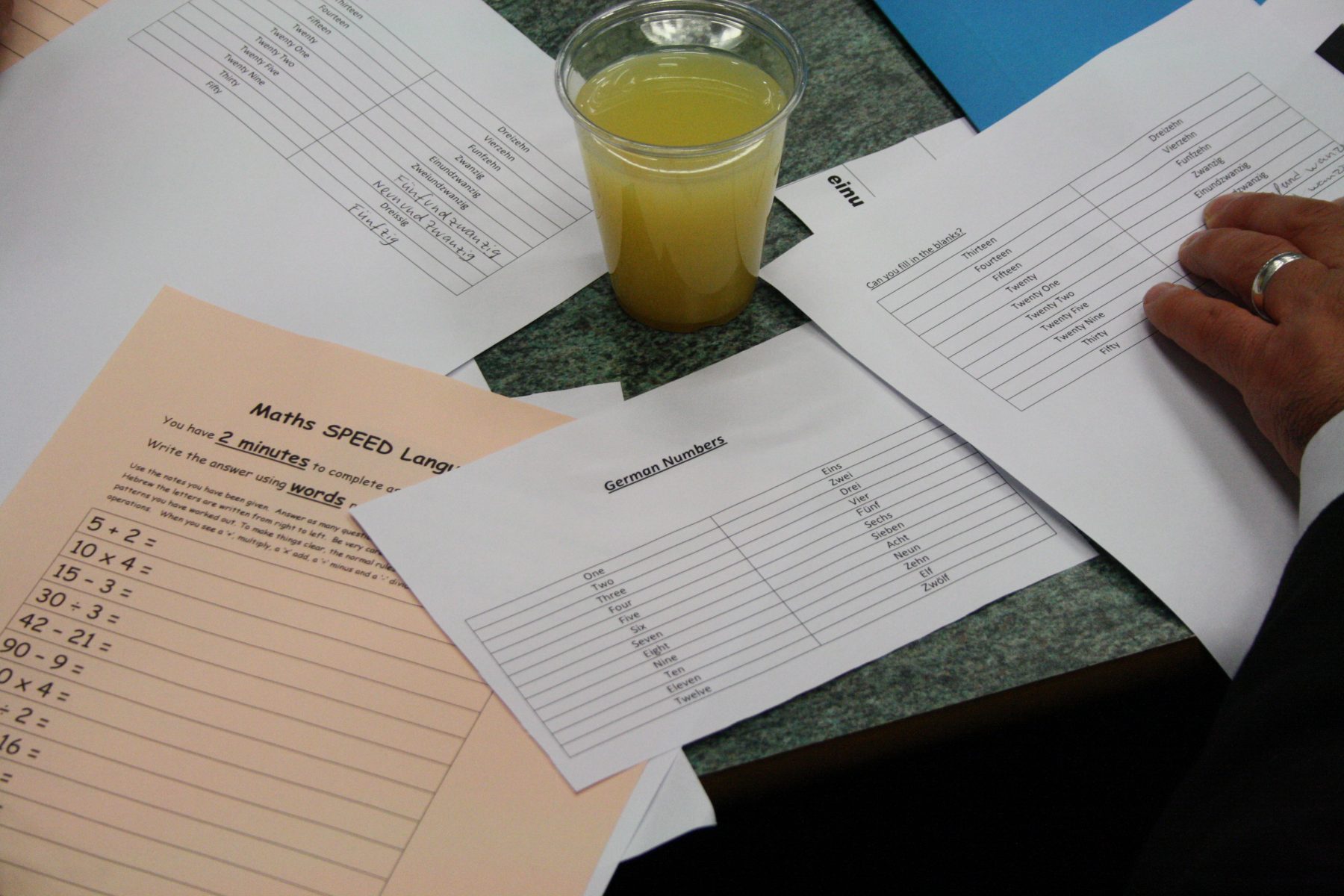Project-Based Learning Resources
Project-based learning refers to students designing, planning, and carrying out an extended project that produces a publicly-exhibited output such as a product, publication, or presentation.
Projects could last anything from a week to a whole term, but should grant students independence to create an authentic final product, requiring them to explore a subject or a combination of subjects in a deep sense throughout the production. Projects are designed to build knowledge and develop skills, to incorporate language learning and inter-cultural understanding and to connect learning to the real-world.

Examples of projects:
Come Dine with Me was inspired by the long-running television show Come Dine with Me, in which a group of people plan and hold dinner parties. Resources include a Come Dine With Me Project Plan and an exemplar scheme of work (as well as an extended version).
Dalí and Surrealism explores how we can we use the works of Salvador Dalí and surrealism to inspire language learning. This arts-based project uses histories and concepts of surrealism to develop students’ vocabulary, grammar, visual literacy and knowledge of art history.
Going Places is inspired by travel writing and what makes a particular country interesting and different: what makes it tick? How do people spend their free time? What makes it different from the UK?
Language Detectives encourages students to think in groups about how languages shape the way people view the world, and often aren’t as different as they seem. It includes a project planner, classroom resources and a PowerPoint presentation.
The Multilingual Digital Storytelling project uses film-making / animation to encourage students to investigate an aspect of culture, identity, lifestyle and perceptions of that culture, in their target language.
The Block is a creative project giving students, in their language groups, the opportunity to use language they have learned to create a picture of life in a fictional block of flats in their target country. Explore the Apartment Block SoW and The Block Pupil Project.
Using the song I Am the Music Man as a template, students choose their own instruments and work in groups to plan, perform, and present a version of the song in their chosen language.
Explore a range of regional and national competitions and projects developed by Routes into Languages, such as RIL East Sing to the Future: Language Beatz Competition and Language on Film Competition, which can be used to support aspects of PBL and also to reward students' involvement in Language Futures.
The Playing with Language project is an arts-based project where students draw on their visual literacy skills to learn about different word categories and develop techniques to learn spellings, gender, and plural forms.
Explore our pupil-led projects including The Block, Wish You Were Here, The Voice and Lights, Camera, Action.
An Introduction to PBL given an overview of project-based learning and includes a useful checklist for teachers. Listen to the Project-based learning in the MFL Classroom webinar which explores PBL at KS3 or the What is Project-based learning podcast below.
What is Project-Based Learning?
Primary Projects
Our Language Futures Maths Project
Our Language Futures Stargazers Project
Our Language Futures A Day in the Life of Project
Traditional Tales from around the World Project
Our Language Futures Playground Games Project
For other primary resources, please explore our Building Schools' Capacity resources page.
Organisations that can support a variety of projects
NCVO Volunteers' Week - resources and tips to celebrate volunteer mentors
#iwill campaign - promotes social action among 10 to 20 year-olds.
Native Scientist - empowering communities through science and celebrating multilingualism.
Inspiring Languages - connecting schools with volunteers who use languages in their jobs.
Language League Project - creative approach to language learning linked to football.
Language Leaders Award - using languages to develop leadership skills.
The Japan Foundation - resources and funding to support Japanese.
Classics for All - funding to support Classics in primary and secondary schools.
The Roman Society - resources and funding to support Latin.
UK German Connection - resources, funding and support for German.
Goethe Institut - resources, funding and support for German.
Routes into Languages - website contains lots of resources and activities to support language learning and making the case
